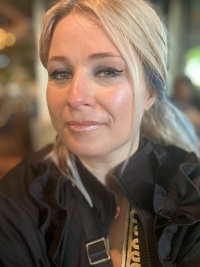My Approach
Integrative Relational Psychotherapy
About Me
“Each human personality is like a piece of music, having an individual tone and a rhythm of its own”. - Hazrat Inayat Khan
Clinical Qualifications, Interests, and Experience:
I am an Integrative Psychotherapist. My core clinical training was at the Metanoia Institute in London. I have four main clinical qualifications: a Clinical Diploma in Integrative Psychodynamic Counselling, a Clinical Diploma in Integrative Psychotherapy, an MSc (with distinction) in Integrative Psychotherapy (Metanoia Institute/Middlesex University), and a Postgraduate Diploma (with distinction) in Clinical Supervision (Scarborough Counselling and Psychotherapy Institute)
My particular areas of clinical interest include anxiety and low mood, life re-evaluation, culture and racialised identity, sexuality, men’s health, neurodiversity (Autistic and ADHD traits), low self esteem, musician's mental health, LGBTQIA+ wellbeing. I am especially interested in working with clients with an HIV diagnosis and have experience working in this field in different contexts. I have experience working with clients from a variety of diverse backgrounds and experiences.
How I work:
I have a clinical practice in Nottingham. I work either face-to-face or online (Zoom) with adults (18+). The heart of my therapeutic approach is relational and appreciates our uniqueness as individuals and on your developing sense of ‘psychological integration’ in the cultural world. This means that I would invite you to consider ways in which you might experience a deeper sense of wholeness, connection, and comfort within yourself in relationship to others and the cultural world around you. I consider each therapy relationship to be different, and so I draw on a wide variety of theoretical approaches to help us reflect on how your thoughts, feelings, and behaviour may interact, converge, or diverge. For example, I appreciate the importance of the mind (thoughts), body (physiological experience), socio-political culture and oppression, how we make meaning in our life existentially, our ‘spiritual’ and creative selves, and how all these aspects can impact us in our everyday lives.
We all take in messages of some sort from the world and we will have our own way of reacting to these. These messages might be explicit and direct or implicit, say through body language, and might come from our parents, peers, siblings, larger family, from society as a whole, the media, or from our culture, racialised identity, and religion. Sometimes the messages we take in are supportive and helpful, but other times they may not support our needs and identity and this might create difficult feelings and a sense of unease and conflict.
I have experience of long, mid-term, and shorter-term work, though I most typically work medium to long-term (6 months +). I'm open to working creatively, and consider the potential role of metaphor, symbolism, the arts, especially as music as a listener or as a musician, and the language and sensation of the body in addition to an explicit verbal narrative. As a focus of our work would be to support your personal empowerment, I cannot 'tell you' what to do. However, I do offer suggestions and feedback that we can evaluate together. My general interactional style is actively involved and I work collaboratively and relationally. To me, 'relationally' means that I value the process of the therapy relationship we create together which may be useful to use and discuss when exploring insights into your life.
I have completed Level 1 of Sensorimotor Psychotherapy training and am a trained EMDR therapist (levels 1,2,3).
Alongside private clinical practice, I consult as a Psychotherapist for a charity focused on music industry professionals: Tonic Music for Mental Health, and also Music and Mind, an independent organisation that works with musicians working in the music industry.
In addition to my clinical work and qualifications, I am a qualified Higher Education Lecturer. I have a Postgraduate Certificate in Higher Education, and am an academic Psychologist by PhD (Chartered Psychologist and Associate Fellow of the British Psychological Society)*. I have 20 years' experience working in Higher Education, teaching psychology and psychotherapy. I currently work as a research supervisor and teaching consultant with a training organisation in London. I experienced both psychodynamic counselling and integrative psychotherapy myself for 13 years and can therefore appreciate the therapy process from a client position.
*I do not have the facility to work with clients in active and acute crisis in my private practice.
*‘This member has completed UKCP Covid-19 Online Working Guidance’
*Please note that although I regularly use skills gained from my academic training to enhance my clinical practice, my PhD in Psychology is an academic Doctorate, and not a clinical one.
I work with
- Individuals
Special Interests
Like all UKCP registered psychotherapists and psychotherapeutic counsellors I can work with a wide range of issues, but here are some areas in which I have a special interest or additional experience.
Types of Therapies Offered
- Integrative Psychotherapist
What I can help with
Types of sessions
- Face to Face - Long Term
- Face to Face - Short Term
- Online Therapy
Nottingham Office
Nottingham
United Kingdom
View Map
Cost:
Fee: £70 per 60 minute hour (Psychotherapy and Clinical Supervision)If EMDR is used in the work this may incur an higher fee if the session is longer than 60 mins (please ask). Initial 30-45 min call offered at no cost.
UKCP College
- Humanistic and Integrative Psychotherapy College (HIPC)


